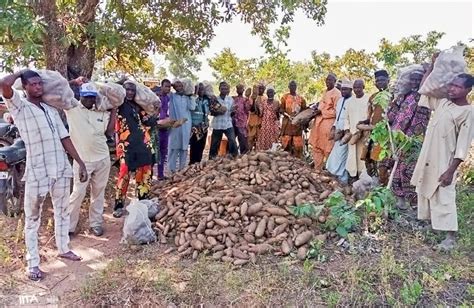When President Bola Tinubu assumed office in May 2023, his administration pledged to revamp Nigeria’s agricultural sector for enhanced food security. Fast forward 19 months later, the nation finds itself grappling with a severe hunger crisis exacerbated by policy decisions that have backfired on its populace.
One of the most contentious moves was the removal of fuel and currency subsidies, which sent transportation and farm input costs skyrocketing. This surge in prices had a domino effect on the cost of goods and services nationwide, leaving many struggling to afford basic necessities. As if that wasn’t enough, factors like insecurity in rural farming communities and extreme weather events such as heatwaves, droughts, and floods have dealt severe blows to agricultural production across the country.
Climate Change Impacts:
In recent years, Nigeria has witnessed a disturbing trend of erratic weather patterns wreaking havoc on crop yields, livestock output, and farmers’ livelihoods. The frequency of flood disasters in key food-producing regions has left farmers reeling from massive losses. These challenges underscore the urgent need for climate-resilient agricultural practices.
Flood Devastation:
The year 2024 saw Nigeria’s National Emergency Management Agency (NEMA) reporting grim statistics – over 300 lives lost, millions affected or displaced, extensive farmlands inundated or destroyed by floods. The aftermath painted a bleak picture for agriculture in numerous localities across the nation.
Policies Impacting Farmers:
The withdrawal of fuel subsidies by Tinubu’s government triggered a chain reaction that hit Nigerian farmers hard. Soaring prices of essential farm inputs hampered productivity levels and forced some poultry farmers out of business due to unsustainable operational costs.
Challenges in Market Access:
Poor infrastructure like road networks and inadequate storage facilities posed significant hurdles for farmers trying to bring their produce to market. The resultant wastage further strained their already limited incomes, highlighting systemic issues that need urgent redress.
Insecurity Woes:
Security threats have disrupted farming activities in various parts of Nigeria, leading to crop losses and displacements within farming communities. This unsettling reality has shrunk arable lands at a time when food demand is escalating rapidly.
Government Interventions:
To mitigate rising food costs amid global upheavals like the Russia-Ukraine war and climate change impacts, Nigeria resorted to duty-free importations on key food items like beans, wheat, and rice. However, these measures failed to alleviate the high prices due to currency devaluation against foreign currencies.
Expert Recommendations:
Experts emphasize the urgent need for substantial investments in agricultural infrastructure such as irrigation systems and storage facilities to minimize post-harvest losses while enhancing market access for farmers. Additionally,
efforts should be made towards reducing high input costs through subsidies or innovative financing models while promoting sustainable agricultural practices tailored to climate realities.
As stakeholders mull over future projections for Nigeria’s agriculture sector amidst a complex web of challenges including climate shocks,
high input expenses,
and security concerns,
the path ahead remains steeped in uncertainties.
However,
there are glimmers of hope with anticipated government actions aimed at enhancing security measures
and driving policy changes that may shape the sector positively.
Clearly,
the road ahead for Nigeria’s agriculture is fraught with obstacles yet ripe with opportunities waiting to be harnessed.
Through concerted efforts
and strategic interventions,
the nation can steer its agro-economy towards resilience
and sustainable growth
for enhanced food security
and economic prosperity.

